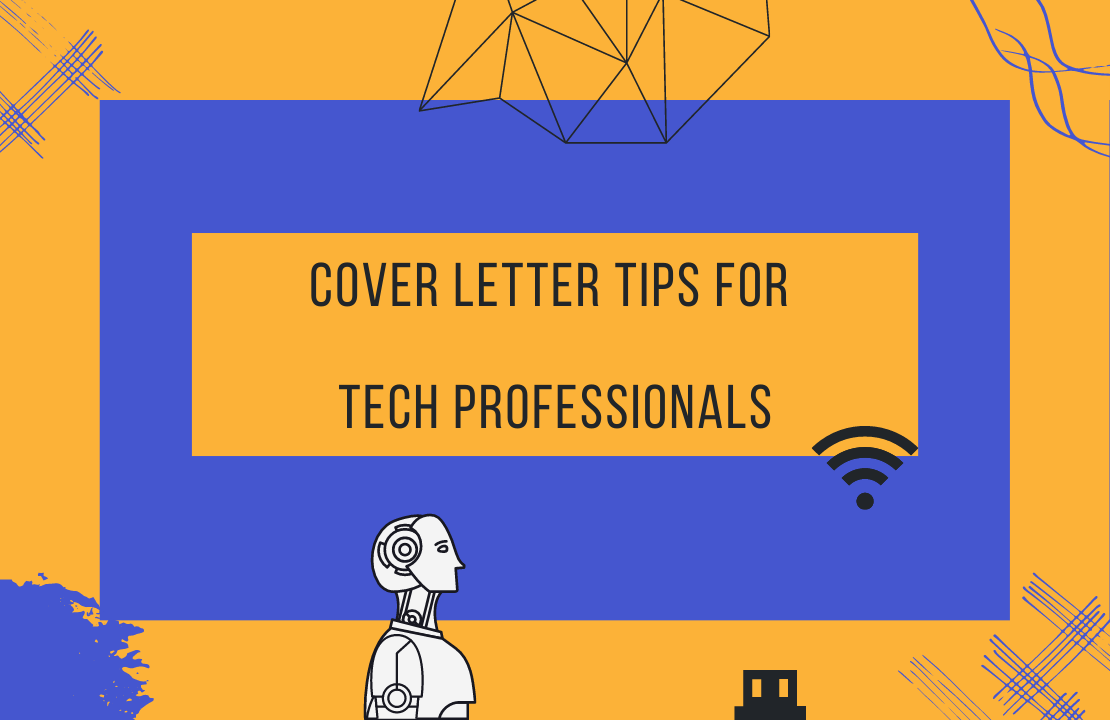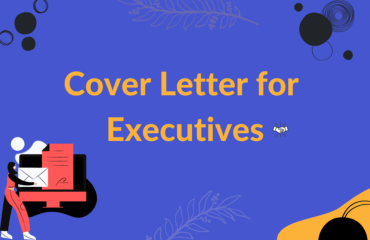Table of Contents
The tech industry is continuously growing at an impressive rate. One of the main reasons is that the global pandemic continues to force various companies to move online. In such a case, businesses have to rely heavily on advanced tech infrastructures to embrace the future of hybrid work – allowing employees to work both remotely and on-site. In fact, Gartner reported that IT spending is projected to total up to $4.5 trillion in 2022, which is 5.5% higher than in 2021. With this in mind, tech talents will be in high demand in the coming years.
While a lot of tech opportunities are available online, competition is tough. Thus, making your application stand out from a pool of tech experts can be challenging. Nonetheless, submitting a well-written cover letter in addition to your best-practice resume can make a big difference. So, in this article, we will share some tips on creating a compelling cover letter to support you in your journey to landing your next tech role.
1. Analyze the job requirements
A cover letter can boost your chance of getting considered for an interview. However, it won’t if your content doesn’t reflect what the position and the employer are looking for. So, before writing your cover letter, it is imperative to have a complete understanding of what the job entails you to do and what the company’s specific needs are.
To better understand what the job and the company require, read the job description thoroughly. This will allow you to determine what areas of your career and expertise you need to highlight. Then, take note of the technical skills, words, and phrases that repeatedly appear in the job post. These will serve as the keywords you need to add throughout your cover letter. However, you don’t have to include all of them to demonstrate you’re a perfect fit. Instead, add them as required wherever relevant. This will make your cover letter more natural, powerful, and engaging while keeping it concise and straightforward.
2. Start with a proper opening
Making a good first impression always leads to positive outcomes. So, to ensure your first impression is a good one, start by addressing your cover letter appropriately. This involves greeting the recipient of your cover letter using a professional salutation followed by their specific first name. Hence, we recommend doing some research to find out who’s the person responsible for hiring. Otherwise, you can use general salutations, such as “Dear Hiring Manager” or more tailored ones like “Dear Software Development Hiring Team” or “Dear Head of IT Department”. Avoid using “Hello”, “Dear Sir/Madam”, and “To whom it may concern”, as these are too unprofessional, impersonal, and outdated.
After greeting the recipient properly, it is now time to introduce yourself. Aside from mentioning the specific position, you are applying for, tell them where you learned about the job. Then, briefly state the experience, technical expertise, or qualifications you possess that make you the ideal candidate. Below is an example of how you can do this in practice.
“Dear Jane,
I am writing to apply for the Director of Software Development role, which I saw advertised on the company’s careers page. As a Head of Software Development with 15+ years of industry experience, I am confident that my expertise in leading application design, development, and implementation makes me a suitable candidate for this unique opportunity.”
3. Showcase your technical expertise
As a tech professional, companies depend on your expertise to continuously innovate their operational processes. Hence, it is important that your cover letter introduces you as a highly capable candidate for carrying out such job responsibilities. The best way to do this is to emphasize the hard or technical skills that match the requirements and qualifications the employer is seeking. Apart from your proficiency with different hardware and software products, here are some skills you may add to your cover letter.
- Coding and Programming Skills – These involve your knowledge and understanding of multiple languages, frameworks, and architecture to build a system or application.
- Technical Writing – This includes writing product descriptions, instruction manuals, and handbooks about technology in an easy-to-understand language for all levels of an organization.
- Project Management – This involves planning, scheduling, and managing IT-related projects to ensure completion within the specified scope and timeline.
- Data Analysis – This is about pulling relevant data from a database, analyzing it, and providing insights and recommendations to drive informed decision-making.
- Product Lifecycle Management – This includes managing the entire lifecycle of a tech product solution, from inception and design to development and launch.
- Scrum and Agile Methodology – This is your knowledge and ability to utilize these methodologies to manage and improve the quality of project outcomes.
- Software Development – This includes designing and developing successful programs and applications to solve business problems and streamline operations.
Here is an example of how you can show your hard or technical skills:
“Having served product management roles in the tech sector for 15+ years, I have garnered an in-depth and diverse range of experience in software engineering and methods of modern technical product discovery and delivery. I take pride in my ability to leverage scrum and agile principles in facilitating new product innovation from conceptualization to implementation. I love my job and am ready to take on new challenges to help you develop future-proof products that satisfy business goals and user needs.”
You may think that careers in tech rely almost exclusively on hard IT skills. However, that’s not always the case. Soft skills make up most of the workplace competencies employers want, as these allow you to showcase your attributes, characteristics, and abilities to thrive in different environments. The IT field is no different. So, to demonstrate your capacity to adapt and excel in your target tech job, you may want to include the following skills in your cover letter.
- Communication – This involves communicating well with diverse people, both written and verbally, to help them solve tech-related issues.
- Organization and Time Management – This involves being able to keep track of things and efficiently juggle several different projects and responsibilities.
- Creativity – This involves being able to come up with actionable ideas to enhance products, processes, or solutions to tech problems.
- Analytical Thinking – This involves identifying, analyzing, and understanding the root cause of the problem to develop suitable solutions.
- Resourcefulness – This involves being able to provide the best tech or product solutions to enhance productivity despite limited resources.
- Teamwork – This includes collaborating and working well with others to deliver better outcomes.
Let us give you another example, this time, to showcase your soft skills:
“Capitalizing on my communication skills, I worked cross-functionally with diverse teams of tech experts to analyze and determine operational gaps and conceptualize an appropriate solution. This enabled me to successfully deploy a highly reliable application for one of our Fortune 100 clients.”
4. Prove your competencies through your achievements
Past successes are a good predictor of future performance. Hence, we highly recommend adding your most notable career accomplishments as concrete evidence of your skills and expertise. Doing so can convince hiring professionals that you are a valuable potential employee and that you can do the same for their company.
To better demonstrate your capacity to deliver results, you can add a few specific numbers. Have you increased the company’s operational productivity? Did you contribute to retaining more customers by implementing software? Have you brought significant cost savings to the business? If you did, make sure to mention these in your cover letter.
While adding accomplishments is imperative, don’t go overboard by writing a full summary of what is listed in your resume. Remember, a resume and cover letter serve different purposes. So, make sure to select only those aligned with what the position and the company are looking for. Let us see an example below:
“As a Senior Product Manager with ABC Tech Company, I have headed the ideation, design, development, and launch of an Electronic Health Record (EHR) system, which significantly reduced record errors and billing fraud to 0.05%. Throughout my career, I have directed the vision, strategy, and design of highly compelling and differentiated products based on market needs, consumer value, organizational capability, and returning value. My efforts have enabled companies to achieve product-market fit, maximize value, and increase net profit by up to 80%. In fact, I have brought $5M+ additional profit to one of the Fortune 500 companies I worked for by deploying a customer-centric application.”
5. Demonstrate enthusiasm
Now you’ve effectively laid out the best case for yourself, it is time to prove your fitness to the company’s culture. Keep in mind that employers do not only look for a potential employee who can do the job well but also who can stay with them in the long term. One of the best ways to do this is to show your enthusiasm and genuine interest not only in the job but also in the company as a whole. Explain why the position appeals to you and why the company is your employer of choice.
To be able to convey your enthusiasm in a convincing manner, we suggest researching the company to learn more about its values, culture, mission statement, and products or services. This way, you can better determine what attracted you the most to the position and the company. Do their values resonate with your passion, goals, and interest? Let us give you another example.
“J.P. Morgan is a global, innovative industry-leading organization that invests billions of dollars annually on a variety of state-of-the-art technologies. I was inspired by your commitment to providing the best products possible to your clients. I am thrilled at the prospect of bringing my technical expertise to your company to help you deliver maximum customer value through your innovative products and services.”
There are various job opportunities for tech professionals as almost every company relies on technology to run its business. As the demand for tech talents increases, competition also becomes tougher. So, to differentiate yourself from other candidates, make sure to include a well-crafted tech cover letter in your application. If you need help creating one, don’t hesitate to reach out.











